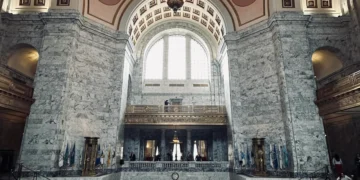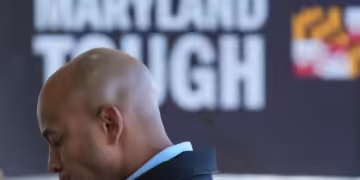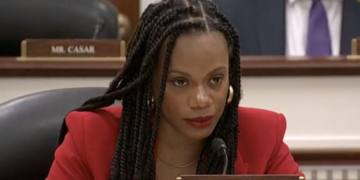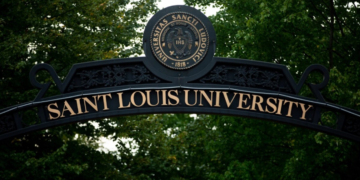Oct 1, 2024 Story by: Editor
After 18 months of gathering testimonies from Black residents of St. Louis regarding historical racial injustices and hearing from experts on the history of slavery and discrimination, the St. Louis Reparations Commission held its final meeting on Monday night to present a draft of its harm report.
The eight-member volunteer commission emphasized that the draft required extensive effort to complete but acknowledged the importance of community feedback to ensure the final report accurately reflects the needs and requests of Black St. Louisans for reparative justice.
The draft encompasses an overview of the commission’s activities and offers recommendations for recognition and redistribution. Key issues addressed include public health, the built environment, state violence and legal reform, housing and land, education, economic justice and wealth creation, and criminal justice and policing. The report also outlines potential city sources for restitution and eligibility requirements for repayment.
“I’m excited that you all will see the labor that we put into presenting what we hope is a powerful reflection of the story of St. Louis that really can be told by race,” stated commission Chair Kayla Reed.
The Missouri Foundation for Health has supported the commission by funding the printing and distribution of the final report, which is set to be made available to the public and St. Louis Mayor Tishaura Jones on October 7.
During the meeting, commission members acknowledged that the final report would not completely address the needs of families, clarifying that this initiative is local and does not substitute for national reparations.
Each category in the recommendations details how the city can provide restitution and the necessary policy changes to prevent ongoing injustices. The draft also proposes the establishment of a permanent city reparations committee to continue this work. Reed highlighted that economic experts would be essential for accurately calculating reparative justice payments. The commission is currently developing an equation for cash payouts but lacks the budget to hire economists to determine the repayment scale.
More than 30 individuals attended the final meeting at City Hall, where residents voiced their concerns and questions regarding eligibility for reparations and the payment process. According to the draft report, individuals who can provide proof of current or past residency, as well as those who can prove they are descendants of enslaved people, may qualify for repayment.
Among the potential recommendations for recognition, the draft suggests that the city issue a formal public apology for its role in inflicting racial harm on Black St. Louisans and adopt an official history that acknowledges these injustices. It also advocates for funding initiatives to preserve Black St. Louis history, create cultural programs that celebrate the Black community, and establish a memorial or museum to honor enslaved individuals.
Regarding redistribution, the draft recommends direct cash payments to descendants of enslaved Black people and Black residents affected by racial discrimination. It includes a proposal for an additional payment of up to $25,000 for former residents or direct descendants of residents from Mill Creek Valley, the Pruitt-Igoe housing project, and McRee Town. These targeted cash payments would compensate families for the city’s role in displacing thousands of Black residents into neighborhoods that were subsequently destroyed.
Possible funding sources for reparations might include the RAM settlement fund, marijuana tax revenues, unspent American Rescue Plan Act (ARPA) funds, or the general city budget.
During the public comment period, residents expressed gratitude for the draft report but voiced concerns about the attainability of reparations, given the commission’s proposal to form a permanent reparations committee.
“This commission has taken 18 months to get to this point does it take this long for any other peoples that are in need to get their just due?” questioned King Ausar, a city worker and fitness coach.
Ausar shared his personal experiences with discrimination as a high school student, police harassment, and difficulties renting homes in predominantly white neighborhoods due to racial hostility. He advocates for cash payments of $5,000 per month for the first five years, followed by a renegotiation of the reparations contract.
Gwendolyn Cogshell, who visited the West End Center as a child for swimming, arts and crafts, and schoolwork, noted that Black residents are not fully utilizing the city-owned space because of leasing costs.
“What they could do is bring everybody here for an after-school program … you can have tutoring, you can have everything, we can just make it a great hub,” Cogshell suggested. “That’s what they do over in the Central West End; they create these hubs where everybody can use it.”
Cogshell found the draft report to be comprehensive, covering various approaches to reparations for Black St. Louisans. She hopes the proposed housing repair grants will be included in the forthcoming final report, which is expected to exceed 100 pages, and urges the mayor to adopt these initiatives swiftly to address the urgent need for repairs to decaying homes in north St. Louis. Source: stlpr

















